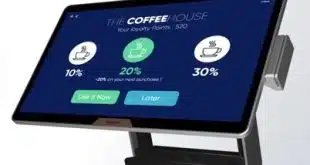The new era of data breaches and privacy failures has had far-reaching effects. Personal information is packaged, sold, and distributed on the dark Web, leaving consumers feeling uneasy. Americans want to be protected, but also want convenience, and are holding businesses to high standards, even higher than what they hold themselves to. Conversely, consumers have relatively low confidence that businesses are truly capable of protecting them.
This year, our team at IDology surveyed 1,024 consumers to better understand the impact that recent breaches have had on their preferences and behaviors, and what that impact means for businesses. Here’s what we found:
Consumers Place a Premium on Security

When opening an account online, consumers place a premium on security (88%) as well as ease (72%). Thirty-one percent said that they had abandoned signing up because it was too difficult or took too long. This reveals that, more than ever, businesses need to verify customers quickly and with minimal friction and also assure them that their transactions and identities are secure.
Too Much Friction = Abandonment
Consumers especially want a frictionless experience during account origination. Legitimate customers don’t want to be treated like potential fraudsters, yet need assurance that the process is secure. Introducing the right friction at the right time can address a consumer’s security concerns—yet, too much friction and not enough sense of security can result in abandonment or less engagement. One in three has abandoned the process of opening a new account because it was too difficult or took too long.
Consumers have the power of choice and will go elsewhere if they feel a company is not serving them well. As a result, the way businesses authenticate and verify customers has become a true competitive differentiator.
Not All Digital Identification Methods are the Same
Other than passwords, the most prolific forms of digital identification have been knowledge-based authentication (KBA) questions, one-time passcodes sent via SMS for two-factor authentication (2FA), and biometrics. Consumers frequently use these, so it’s not surprising that these are also the methods they trust the most.
When it comes to knowledge-based authentication, not all questions are viewed the same. Overall, 90% of consumers are comfortable answering KBA questions to verify their identities, but prefer demographic-based questions two-to-one over credit-based questions. This clear preference can be attributed to the data source and how easy it is to recall certain types of information. A dollar amount for a mortgage payment is often more difficult to recall than the name of a street— particularly if the payments are made automatically.
Questions related to credit accounts can be similarly difficult if the account has been closed for some time. Street names and cities are more intuitive and are used more frequently in our day-to-day lives, so they’re easier to recall.
Consumers Expect Businesses to Protect Their Personal Information
Many consumers place a higher responsibility to protect their identities on companies than on themselves, while still expecting a seamless experience. Sixty-seven percent strongly agree that it is a company’s responsibility to protect consumer data, compared to 59% who strongly agree that it’s a consumer’s personal responsibility. Further, half of consumers surveyed are somewhat or not at all confident that businesses and government agencies can protect their identities.
The Bottom Line
It is critical to understand shifts in cybercrime and make adjustments that address these changing behaviors. The fact that consumers want the best of both worlds—both security and less friction—will continue to challenge businesses.
Now more than ever, identity proofing that validates consumers “behind the scenes” and applies friction only when needed is how smart businesses are elevating customer trust, deterring fraud, and differentiating themselves from competitors.
—Chris Luttrell is senior vice president of product, client solutions, and marketing at IDology Inc., Atlanta.




